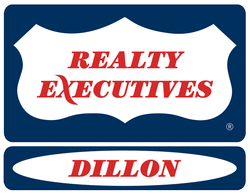One of the hardest things a Buyer’s agent has to do during a transaction is tell the Listing agent that the client no longer wants the house.
And unfortunately, situations like this do happen. So, today we’re going to discuss the scenarios that can lead to someone cancelling a purchase agreement and what you can expect if it ever happens to you. As a Seller it is helpful to know what your options are so you know what to do next. And of course you will want to talk to your real estate agent before taking any further actions.
Some situations (or contingencies as they are called) that can cause a deal to fall through include the following:
- Buyer suddenly loses their job
- Buyer gets turned down for a mortgage loan application
- Buyer’s unable to sell old home
- Seller’s fail to meet terms for repairing after a Home Inspection
- Undisclosed flaws with the home or evidence of unpermitted work
- Property boundary lines are misrepresented
- Undisclosed easements
- Clouds on a home’s title such as mechanic’s liens
A standard purchase agreement requires Buyers to make an Earnest Money Deposit. This is to assure the Seller that the Buyer is serious. Typically, the Buyer has about 5 business days to make that deposit. If the Buyer stalls on making the Earnest Money Deposit, that could be signs that they’re still shopping around for other offers or getting cold feet. In a Buyer’s market with low inventory, they may put in several offers to different properties and pick the one that best matches their criteria for the best price.
While this is frustrating, it is better for both parties that the Buyer cancel at this point before sending the Earnest Money Deposit than after legally binding contracts are signed and they’re halfway through escrow. Once the deposit is accepted by the Seller and/or listing agent’s brokerage, the Buyer may still choose to cancel but can only receive a refund of the deposit if they fall under a contingency.
Top listing agents should know what all of those possible contingencies are and they will keep track of the Buyer to make sure they are doing them on schedule. Most contracts allow buyers to have a 10-day due diligence period. This period is usually the time when the Buyer gets access to the home to run a Home Inspection. This is also when the Seller should provide the Real Property Disclosures.
Buyer Has to Sell their Current Home First
Another contingency that is common is a Buyer who has to sell their home first. You should ask your Listing agent to verify if their home is listed and priced to sell before considering their offer. The most ideal scenario is if the Buyer’s home is already under contract and the buyer of their home has already passed the due diligence phase.
If the Buyer decides not to go through with a home purchase, the Seller may either retain the earnest money deposit or sue for breach of contract.
There are Two reasons for canceling home purchase agreements that are not a breach of contract.
Financing contingencies:
The Buyer makes a good faith effort to apply for a mortgage but then gets turned down. Sellers should make sure their agents will double check Buyer’s pre-approval letters. Some sellers make the mistake of assuming that Buyers with low down payments are not as qualified as buyers with bigger down payment. Today’s low interest rates encourage Buyers to finance as much as possible so the size of a down payment usually does not warrant mortgage approval.
Inspection contingencies:
If the Home Inspection turns up defects (which all do) and the Buyer does not want to handle those defects or the two parties cannot come to an agreement over the repairs, then the deal is typically over and the Buyer is free to move on without breaching the contract.
“Only 20% of US Home Buyers do not show regrets or buyers remorse after entering a Home purchase agreement.”
Buyers Remorse (is not a contingency)
Aside from these possible contingencies that could lead a Buyer to cancel on a Home purchase, sometimes Buyers just legitimately change their mind. “We’re closing in 36hrs and now they want a condo looking over the river?!”
If the Buyer passed all the other contingencies and end up still backing out of buying your home then they would fall under this category of Buyer’s Remorse. In this case, the Residential Purchase agreement will protect the Seller and offer two legal options: 1) The Seller is entitled to keep the Earnest Money Deposit as liquidated damages or 2) the Seller has the right to recover from Buyer all of Seller’s damages.
When Buyer’s enter the purchase the agreement they had the opportunity to choose one of these 2 options. For their sake, let’s hope they chose Option #1 as most Buyers don’t want to run the risk of the Seller coming after them for any amount more than the Earnest Money Deposit.
Let’s Get Back in the Saddle and Focus on the Goal: HOME SOLD
Regardless if it’s the Buyer’s fault that the sale didn’t go through, it’s important to stay focused on the primary goal, which is to sell the house. You should put the home back on the market as soon as possible.
Your realtor may recommend revisiting the list price before making it active again. Have any homes in the area sold during that timeframe that could influence your appraisal? Are there newly active listings that could compete with your home? If your realtor suggests a price adjustment based on the current market, better to do it than risk staying on the market longer than necessary.
You may now be realizing that selling a house has a lot of steps involved which is why most Sellers who attempt to sell their homes themselves end up hiring a top-notch listing agent to take over.
If you are planning on selling your home, consider interviewing the Realty Executives Dillon Real Estate Experts.







 RSS Feed
RSS Feed
















